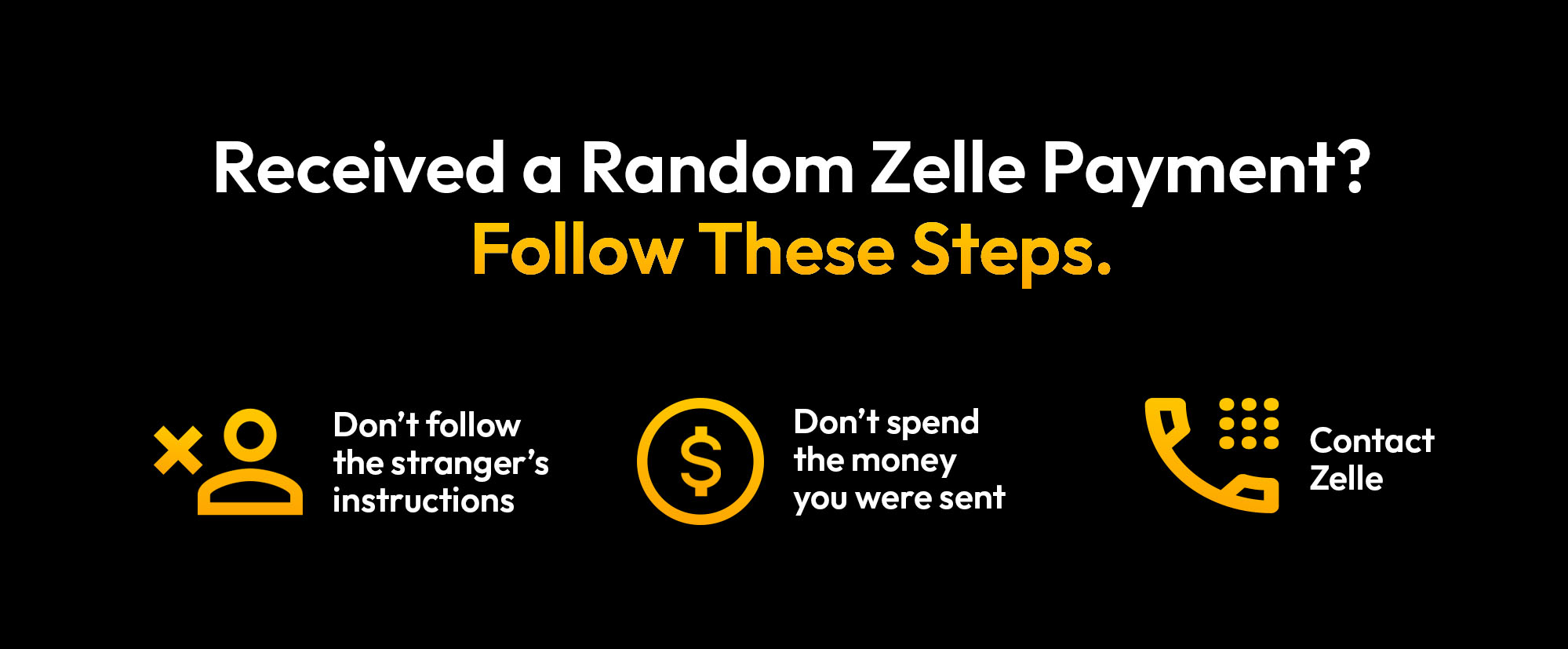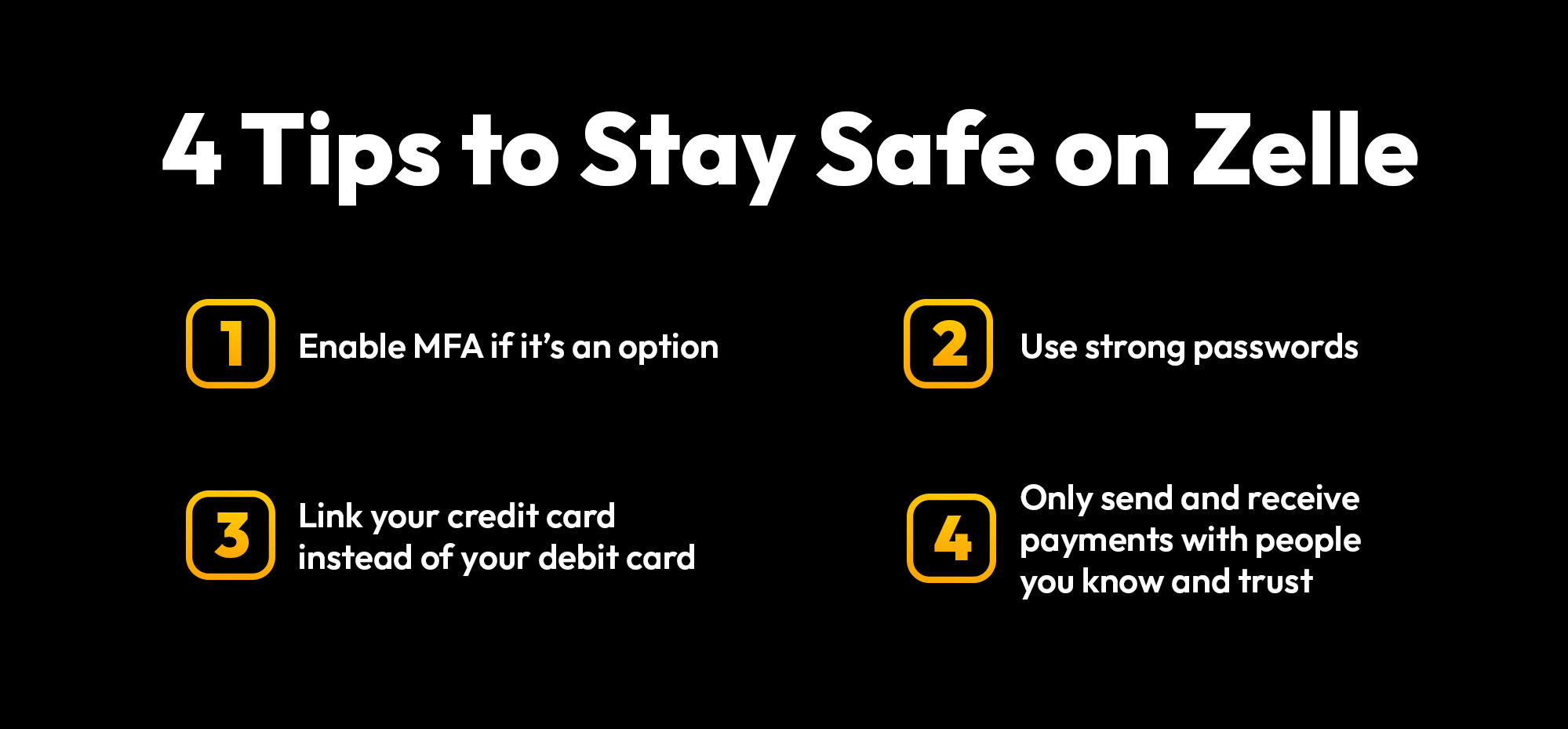The main difference between an attack vector and an attack surface is that an attack vector is the specific way a cybercriminal can take advantage of
No, it is not safe to accept Zelle payments from strangers because there is always the possibility of the stranger being a scammer. If the stranger is a scammer, then you could end up losing money by accepting a Zelle payment from them. It’s best to only use Zelle to send and receive payments from people you know and trust.
Continue reading to learn the risks of accepting Zelle payments from strangers, what to do if you receive a random Zelle payment from a stranger and how to keep your funds safe when using Zelle.
What Is Zelle?
Zelle is a Peer-to-Peer (P2P) payment app that allows users to send and receive money from family and friends. Major banks like Chase and Bank of America work with Zelle so their customers can send and receive money to and from people they know and trust.
Zelle is one of the few P2P payment apps that doesn’t offer its users payment protection for transactions that were authorized by the user. This means if a user sends a payment they didn’t mean to send or sends it to the wrong person, Zelle will likely not reverse or reimburse the payment. When sending payments using Zelle, users should be extra careful about who they’re sending the payment to, so they can avoid losing money.
The Risks of Accepting Zelle Payments From Strangers
Zelle strongly recommends that users only use the app to send payments to and receive payments from people they know and trust. Because Zelle scams are common, it’s best to avoid accepting Zelle payments from strangers when selling items online. Here’s why.
The stranger may use a stolen credit card
If you’re selling an item online and the buyer refuses to use any other payment method but Zelle, be aware of the possibility that they could be using a stolen credit card. Typically, how this scam works is that the buyer sends you the money through Zelle and you receive it, so you ship or hand over the item to them. However, if the buyer is using a stolen credit card, then the funds will eventually be removed from your account since the payment was fraudulent.
Depending on what the item was, you may have lost out on a significant amount of money.
The stranger may overpay you and ask you to send money back
Another common scam on Zelle is a buyer overpaying you by a large amount and then asking that you send the money back. The payment is usually fraudulent, so sending them money back means you’ll be losing money since the initial payment will be reversed after your payment to the “buyer” goes through.
Be extra careful about whom you send payments to and receive payments from via Zelle because Zelle will most likely not reverse your payment once it’s already gone through.
What To Do if You Receive a Zelle Payment From a Stranger
Another scam that occurs on Zelle is receiving a random, unsolicited payment from a stranger. The stranger may plead with you to send the money back because they need it. While a scenario like this could occur where a stranger accidentally sends money to the wrong person, it’s also a tactic that many scammers use to steal your money.
If you ever receive a random Zelle payment from a stranger, take these steps.
- Don’t follow the stranger’s instructions: The stranger’s instructions are going to urge that you just send the money they “accidentally” sent back to them. To avoid losing money from a possible scam, don’t send the money back.
- Don’t spend the money you were sent: Avoid spending the money that the stranger sent you. If the stranger is a scammer, you would just be spending your own money. If the stranger is not a scammer, you’ll want to avoid spending it to avoid complicating the situation.
- Contact Zelle: Rather than sending the money back or spending it, get in contact with Zelle. Explain your situation and let them know that you believe this may be a possible scam attempt to get you to send the scammer your money. Zelle may reverse the payment to the stranger so you can avoid sending it back yourself.
How To Keep Your Funds Safe When Using Zelle
To keep your funds safe when using Zelle, only use the service to send and receive payments from people you know and trust, link your credit card rather than your debit card, and secure your Zelle account with a strong password and Multi-Factor Authentication (MFA).
Only send and receive payments with people you know and trust
As mentioned above, Zelle encourages you to only use their service to send and receive payments from people you know and trust. This is mainly because Zelle doesn’t offer payment protection, so sending a payment to the wrong person or a potential scammer could mean that you lose that money permanently.
Receiving payments from strangers could also increase the risk of falling for scams through Zelle so it’s best to avoid using Zelle as a way to receive any payments from people you don’t know.
Link your credit card instead of your debit card
If you use Zelle’s app, you’ll want to make sure you’re connecting your credit card to the app rather than your debit card. This is because credit cards offer better fraud protection than debit cards which keeps your money safe even if you were to fall for a scam.
Credit cards will investigate fraud and scams to help you get your money back, even if the app or site where you experienced the scam refuses to reimburse you or reverse your payment.
Use strong passwords
All of your online accounts, especially money-transferring apps and bank accounts, should be secured with strong passwords. Strong passwords are passwords that are impossible for unauthorized users to guess or crack. The passwords for all of your accounts should be random, meaning they should contain a mixture of letters, numbers and symbols. Your passwords should also be at least 16 characters long. The more random and the longer your passwords are, the more secure they’ll be.
It’s difficult to create strong passwords for each of your online accounts on your own, let alone remember them all, but a password manager can help. Password managers help users create strong passwords and securely store them so users don’t have to remember them all on their own.
Enable MFA if it’s an option
In addition to strong passwords, you should also have MFA enabled on your online accounts. MFA is a security measure that requires extra authentication before you can log in to an account. Apart from your username and password, MFA would require one or more additional methods of authentication such as facial recognition and a Time-based One-Time Password (TOTP) code from an authenticator app. The MFA method chosen varies on the options available and what you decide to enable.
Even if an unauthorized user learned your password, MFA would prevent them from being able to log in to your account.
Stick To Accepting Zelle Payments From People You Know
While Zelle offers a convenient way to send and receive payments from anyone, it’s best to only use it with people you know and trust, like friends and family. This will help you stay protected against common scams on Zelle that aim to steal your money. Rather than using Zelle to send and receive payments from strangers, use a payment app like PayPal since it offers protection for its users.
Protecting your P2P payment apps and bank accounts with strong passwords is just as important as being cautious of whom you send payments to and receive payments from. See for yourself how a password manager like Keeper® makes securing your accounts easy by starting a free 30-day trial.
 Cybersecurity
Cybersecurity 


